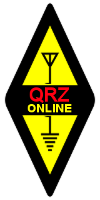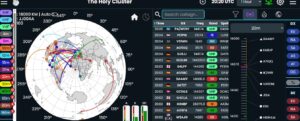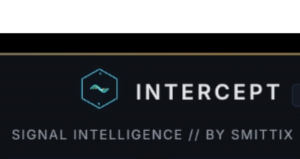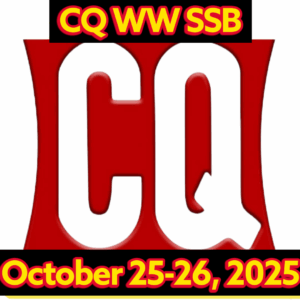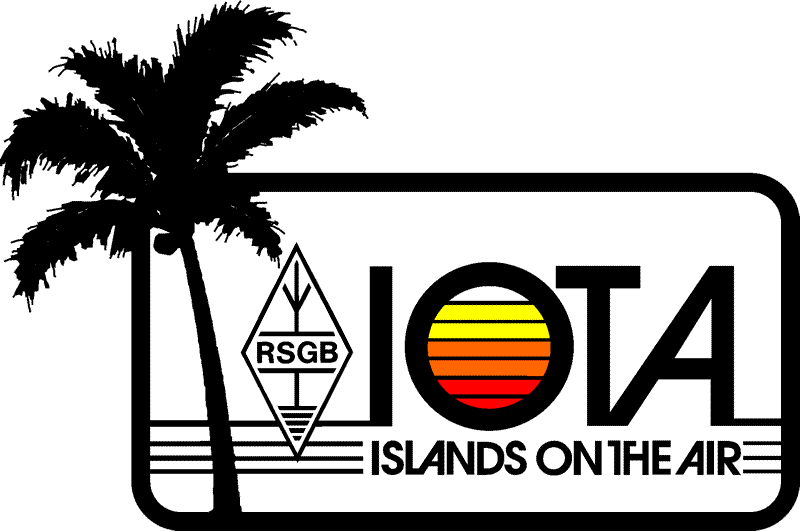
RSGB IOTA Contest | |
| The RSGB IOTA Contest is the most popular contest in the RSGB HF Contests calendar, attracting entries from around the world. IOTA refers to the RSGB “Islands on the Air” awards. A newcomers’ guide to the system of IOTA references and further information on the IOTA Contest can be found at the IOTA Contest Information page and on the IOTA Contest FAQ page. A beginners’ guide to operating in the contest is here. If you have any questions about these rules, please email hf.query@rsgbcc.orgChanges for 2023: (i) As announced by the RSGB on 4 March 2022 (here), until further notice, all logs received from stations in the Russian Federation or Belarus will be treated as check logs. In order not to oblige our entrants to make QSOs with Russian Federation or Belarus stations, to make a competitive score, QSOs with Russian Federation and Belarussian stations will not accumulate QSO points or IOTA multipliers in the IOTA Contest. | |
| 1. Objective | To promote contacts between stations in IOTA island groups and the rest of the world, and to encourage expeditions to IOTA islands. |
| 2. Date & Time | Saturday 29th – Sunday 30th July 2023 1200 – 1200 UTC QSOs will not be accepted at or past the end time |
| 3. Frequencies and Modes | 3.5, 7, 14, 21 and 28 MHz CW and/or SSB |
| 4 (a) Entrants | (a) The contest is open to all stations world-wide. (b) Stations operating from a qualifying island are “Island Stations”. They must make sure beforehand that the QTH from which they are operating is a valid island for IOTA purposes. This can be checked and Island References can be obtained here. (c) Stations not operating from a qualifying island are “World Stations” (d) Special Contest Callsigns or Club Callsigns may be used (e) Operation must be from a single Station location where all transmitters, receivers, and antennas are located within a circle of a radius no greater than 500m (f) Remote receivers outside the Station location are not permitted (g) Remote operation of a World Station is allowed where the operator is situated not more than 100km from the Remote Station and is within the same DXCC entity as the Remote Station. (h) Remote operation of an Island Station is allowed where the Operator is situated within the same DXCC entity as the Remote Station, not more than 100km from the Remote Station, and either on the same island or on an island which is a qualifying island in the same IOTA group as the Remote Station. (i) A remotely operated station must obey all station licence, operator licence, and category conditions (j) The callsign used must be one issued or permitted by the Regulatory Authority of the Remote Station location (k) The address of the operator must be included in the ‘Address of Operator when operating Remote from Station Address’ box on the Station Information Page and the address of the remote station must be included in the Cabrillo header ‘ADDRESS:’ box. (l) The RSGB HF Contest Committee may place remotely operated stations in a separate results table. |
| 4 (b) Categories | 4.1 CATEGORY – LOCATION: (i) “Island Station – Fixed”, a station operating from a qualifying IOTA island, explained in Rule 4(a). (ii) “Island Station – DXpedition”, a station also operating from a qualifying IOTA island. In addition, the island can only be reached by boat or air. Islands which can be accessed by bridge or causeway, man-made or natural, are not eligible. The majority of operators must also be non-resident on the island. And the operators must take all radio equipment and antennas with them, and must not rely on a resident or on any masts or towers already installed for any part of the station. (iii) A “World Station” is any station which is not an Island Station. There are no World Station Multi-Operator categories. 4.2 CATEGORY – OPERATORS: (i) Single Operator Unassisted (ii) Single Operator AssistedThe Category Overlay – NEWCOMER is available to Single Operator entrants, where the operator was first licensed less than 3 years before the date of the contest.In Single Operator categories, only one signal may be transmitted at any one time. (iii) Island Multi-1. Island Stations only, 24-hour Mixed Mode only, High Power or Low Power only, Assisted only. (iii.1 )Island Multi-1 stations are restricted to a maximum of two transmitters, where the first station is the RUN station, labelled “0” in the Cabrillo log. (iii.2) The second is the MULTIPLIER station, labelled “1” in the Cabrillo log. The MULTIPLIER station is used to find and call other stations, but only if the station is a new multiplier. (iii.3) The MULTIPLIER station must not be used to solicit other contacts, e.g. by calling “CQ” or “QRZ?”. Any non-multiplier QSOs made accidentally on the MULTIPLIER station must be logged, but will be scored as zero points. (iii.4) Island Multi-1 entrants must include a full list of operators with their entry in the Cabrillo OPERATORS section.(iv) Island Multi-2. Island Stations only, 24-hour Mixed-mode only, High Power or Low Power only, Assisted only. (iv.1) Island Multi-2 stations are restricted to a maximum of two transmitters, where the first station is labelled “0” in the Cabrillo log and the second is labelled “1”. (iv.2) Both stations may be used to solicit contacts and to search for multipliers. (iv.3) Island Multi-2 entrants must include a full list of operators with their entry in the Cabrillo OPERATORS section. (v) World Multi-op: There are no World Station Multi-Operator categories. All World Stations must be Single Operator entries i.e. the same operator for the duration of the contest. World Stations that list more than one operator will be reclassified as a Check Log 4.3 CATEGORY – MODE: CW SSB Mixed-Mode. Multi-Operator entries must be Mixed-Mode. 4.4 CATEGORY – OPERATING TIME: 24 hours. Multi-Operator entries must be 24 hours. 12 hours. In the 12-hour category, operation need not be for one continuous 12-hour period, but once operation has commenced in the contest, off periods must be a minimum of 60 minutes. 4.5 CATEGORY – POWER: High Power — maximum licensed power, but no more than 1500W output. Low Power – maximum 100W output. QRP – maximum 5W output. Note: Any station not indicating transmitter power will be classified as High Power |
| 5. Exchange | (a) World Stations: send RS(T) and serial number starting from 1 and incrementing by 1, for example: 599 254 (b) Island Stations: send RS(T) and serial number starting from 1 and incrementing by 1, plus their IOTA Reference, for example: 59 378 EU115 (c) Entrants will not be penalised if their sent serial numbers are logged slightly out of sequence (d) Please log any exchange that you are sent to the best capability of your logging facility; if you are not sent an exchange, log a zero (e) Mixed-Mode entrants may contact stations on both CW and SSB on each band. Do not use separate numbering systems for CW and SSB. Multi-Operator entrants may find it convenient to allocate separate blocks of serial numbers for each station, but do ensure if possible that there is no duplication of serial numbers. (f) Island stations should announce their IOTA Reference during CQ calls so that other stations can check for Dupes before replying |
| 6. Scoring | (a) Island Stations contacting: World Stations: 5 points Island Stations having the same IOTA reference: 5 points Other Island Stations: 15 points (b) World Stations contacting: World Stations: 2 points Island Stations: 15 points (c) Multiplier. The multiplier is the total of different IOTA references contacted on each band on CW, plus the total of different IOTA references contacted on each band on SSB (d) The Total Score is the total of QSO points on all bands added together, multiplied by the total of multipliers on all bands added together |
| 7. Log Submission and Adjudication | (a) Submit in Cabrillo format here within 5 days of the end of the contest. View the correct Cabrillo format for this contest. (b) If the robot finds format errors, it will reject the log and ask for resubmission of a corrected logfile. (c) Second and subsequent log uploads may be subject to analysis of any changes that have been made. (d) If you have difficulties preparing or uploading your Cabrillo logfile, please contact the contest adjudicator to ask for assistance, before the submission deadline. (e) Adjudicated results will be online and will include online logfiles for all entrants (f) Errors will incur penalties as outlined in the RSGB HF Adjudication Principles. This penalty will be the loss of an additional 5 QSO points. (g) The use of CAT Control to log the correct frequency and mode is highly recommended – you will lose QSO points for frequency and mode errors. |
| 8. Results and Awards | (a) Awards for RSGB HF Contests are shown here (b) Winners of awards will be indicated in the results tables complete with downloadable certificates |
| 9. Supplementary Rules | (a) Any infringement considered to be outside the spirit of the contest may result in QSOs being disallowed, the entry being reclassified as a Checklog, or the entry being disqualified. (b) Self-spotting or asking to be spotted is not permitted. (c) Call signs logged must be the same as those exchanged over the air by the entrants during the QSO. Correction of logged call signs and exchanges after the contest, by use of any database, recordings, email or other methods, is not allowed. (d) All requests for contacts, responses to calls, and copying of call signs and contest exchanges must be accomplished during the contest period using the mode and frequencies of the contest. (e) You must send your callsign at least every 3rd QSO and no less often than once a minute. (f) Proof of contact e.g. an MP3 audio recording, may be required as part of the adjudication process. |
| 10. Declaration | By entering any RSGB HF Contest you declare that: (a) Your station was operated strictly in accordance with the rules and spirit of the contest, within the conditions of your licence, and that the power output from your transmitter was no greater than that permitted in the section of the contest that you are entering. (b) You agree that decisions of the RSGB HF Contest Committee will be final in cases of dispute. (c) By submitting a log entry, entrants give the RSGB permission to score, amend, publish, republish, print, and otherwise distribute that entry by any means. |
| 11. Adjudicator | Mike G3VYI |
Source: RSGB – Contest Committee
